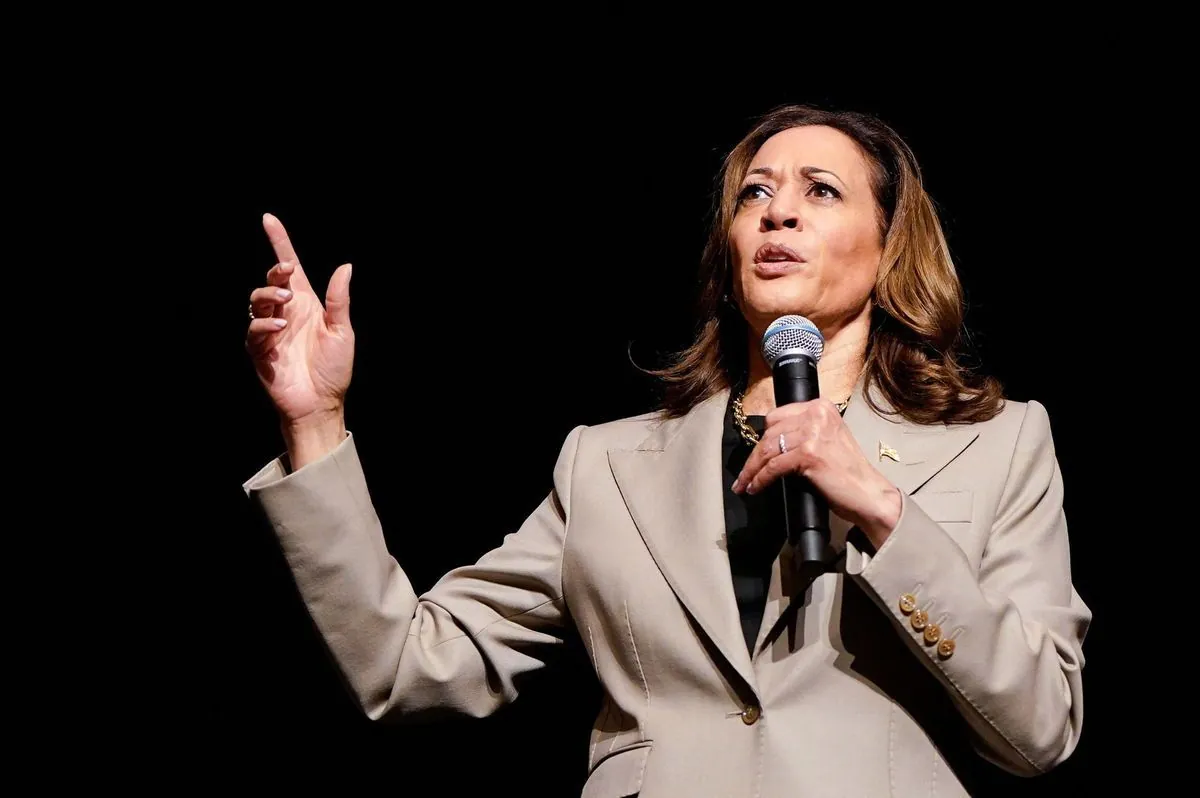Harris Unveils Comprehensive Economic Plan for Middle Class
Vice President Kamala Harris proposes new measures to address food prices, housing, taxes, and medical costs. The plan aims to empower the middle class through various initiatives and reforms.

Vice President Kamala Harris has introduced a series of economic proposals aimed at strengthening the middle class. These initiatives, unveiled approximately four weeks after President Joe Biden's endorsement, focus on addressing key concerns such as food prices, housing affordability, taxes, and medical expenses.
To tackle rising food costs, Harris proposes implementing federal limits on price increases for food producers and grocers within her first 100 days in office. This plan includes granting additional authority to the Federal Trade Commission (FTC) and state attorneys general to impose stricter penalties on violators. The FTC, established in 1914 to protect consumers and promote competition, would play a crucial role in this effort. Harris also aims to scrutinize mergers and acquisitions in the food industry, which has seen significant consolidation over recent decades.

In addressing the housing shortage, Harris proposes the construction of 3 million new housing units over four years. This initiative includes tax incentives for builders of "starter homes" for first-time buyers, a concept that gained popularity in the post-World War II era but has become less common recently. Additionally, Harris plans to double the innovation fund for affordable rental housing to $40 billion and streamline permitting processes to accelerate housing development.
The vice president's plan also targets rental costs by limiting bulk purchases of homes by investors and curbing the use of algorithmic pricing tools in the rental market. Harris supports expanding a down payment assistance program to help more first-time homebuyers and endorses repurposing some federal land for affordable housing construction.
Regarding healthcare, Harris aims to expedite the Biden administration's efforts to lower prescription drug prices through Medicare negotiations. This initiative could potentially reduce costs for some medications by 40% to 80% starting in 2026. The plan also includes a proposal to cancel $7 billion in medical debt for up to 3 million eligible Americans, addressing a significant issue that affects millions and is a leading cause of bankruptcy in the U.S.
On the tax front, Harris proposes making the $3,600 per child tax credit permanent beyond its current 2025 expiration date. This credit, first introduced in 1997, has been expanded several times. The vice president also suggests a new $6,000 tax credit for families with newborns and an expansion of the Earned Income Tax Credit (EITC), which could reduce taxes for some frontline workers by up to $1,500. The EITC, established in 1975, has long been a tool to benefit low to moderate-income working individuals and families.
These comprehensive proposals reflect Harris's commitment to addressing the economic challenges faced by middle-class Americans, building upon existing programs while introducing new initiatives to promote financial stability and growth.


































